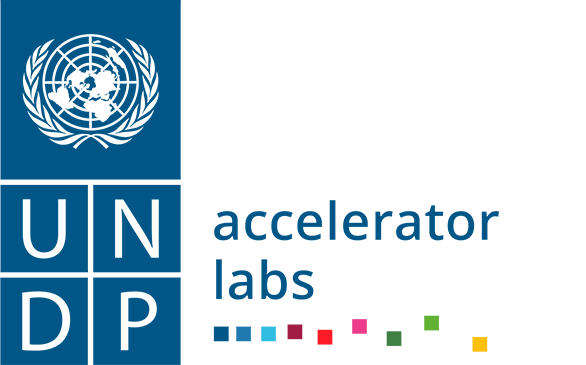Community systems thinking for addressing local challenges.
What it does.
This tool is designed for local governments to trigger sustained social change, with a focus on community systemic thinking. It utilizes different forms and scopes of systemic thinking applied at the local level to:
- Provide new knowledge about municipal challenges from a systemic perspective through participatory processes with diverse groups of people, including the perspective of those in vulnerable situations or distant from government.
- Identify existing efforts and leverage points to prioritize intervention areas.
- Identify local actors linked to areas of opportunity for promoting development and building shared interests that incentivize collaboration.
Value proposition for the government/other partner.
By having a community-led systems thinking tool for addressing Human Development Report (HDR) challenges, you will enable participants with a structured and holistic approach to understanding, analyzing, and solving complex problems associated with local challenges, supporting a civic space for effective, inclusive, and participatory governance. The value proposition of such a tool lies in its ability to enhance decision-making, problem-solving, and overall effectiveness in addressing complex challenges, aligning with UNDP’s governance signature solution and SDG 16: building effective, accountable, and inclusive institutions at all levels.
Why and when to use it.
This tool is most useful when local governments face development challenges with little clarity on how to address them or where to start, when existing efforts seem ineffective, and when opposed perspectives stall policy design or implementation.
Known issues and troubleshooting.
If there is a lack of community engagement, open interest from authorities, and commitment to follow up on agreements derived from a participatory exercise, it’s probably not the best time to make use of this tool. In such cases, teams should work towards promoting the value of participatory governance with local authorities and the community.
Context.
UNDP Mexico has been publishing Human Development Reports periodically since 2003. These publications have enriched public discourse on topics such as gender gaps in human development, inequality, and social mobility in the country, as well as equity in the exercise of public spending.
In 2022, UNDP in Mexico released the Municipal Human Development Report 2010-2020, aiming to update data on the Municipal Human Development Index (HDI) and the Municipal Functional Capabilities Index (ICMF). The report includes an analysis that serves as a diagnosis of the human development situation in the country’s municipalities, identifying trends and providing recommendations to strengthen policies and public programs at all three levels of government.
In the Accelerator Lab, we seized this opportunity to visit some municipalities in the country. The goal was to learn more about the local experience and perspectives regarding the development challenges faced by communities, as well as the views of public servants in addressing these challenges. This was done with the aim of strengthening networks of local actors interested in promoting the Agenda2030 and creating opportunities for social change at the local level.
Cost to implement.
This is a very cost-effective solution that, without considering travel costs, can be funded with less than USD 10.000.
Time
While the community workshop is designed to happen in 3 days, considering two months to implement the solution fully, including a month before hand to connect to local actors and prepare the ground and a month afterwards to systematize information and create products to return to the community.
People.
The implementation of this tool involves the participation of the following groups:
- Facilitating team: A group of 3-5 individuals with skills to moderate conversations and create a safe, dynamic, and inclusive participatory space.
- Local connection: Individuals identified as local leaders with a good understanding of the context, territory, and its people. This group is particularly crucial when facilitators are not from the community. They assist in identifying and inviting a diverse and gender-balanced group of participants.
- Core participants: Initially formed by representatives from various community groups to trigger systemic change, the core group is perhaps the most crucial, as most activities are designed to take place within this group. The group should be intersectoral, diverse, and inclusive of all voices within the human collective being addressed. A manageable size for the facilitation team (20-30 people are recommended) is ideal, with representation from all groups related to the issue to be addressed. This ensures a richer understanding of the problem and the development of more suitable pathways for change. It is advisable to include community leaders, local and state governments, civil society, academia, and other sectors present in the locality. Additionally, individuals who may not reside in the community but have an impact within it, such as representatives from state or federal governments or members of NGOs operating in the area, can be integrated. Moreover, it is important to strive for a gender-balanced composition from an inclusive perspective.
- Extended community: This refers to the total population of the community that is not part of the core group. Some activities are designed for open participation by anyone within the community to inform about the process and offer extra insights and feedback. For example, to include those who couldn’t participate in the core group due to other obligations or other groups like young people and children.
Focal point.
Country, year, and language.
Mexico, 2022, Spanish
Resources.
- Blog (Spanish) – De mochilazo con PNUD: en búsqueda de nuevas rutas de soluciones colaborativas para el desarrollo humano
- Report (Spanish) – Informe de Desarrollo Humano Municipal 2010-2020: una década de transformaciones locales en México
- Report (Spanish) – De mochilazo con PNUD
